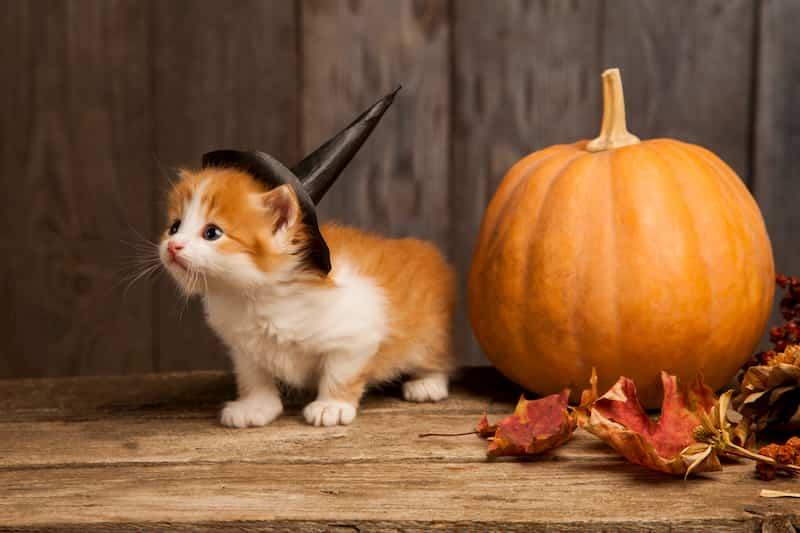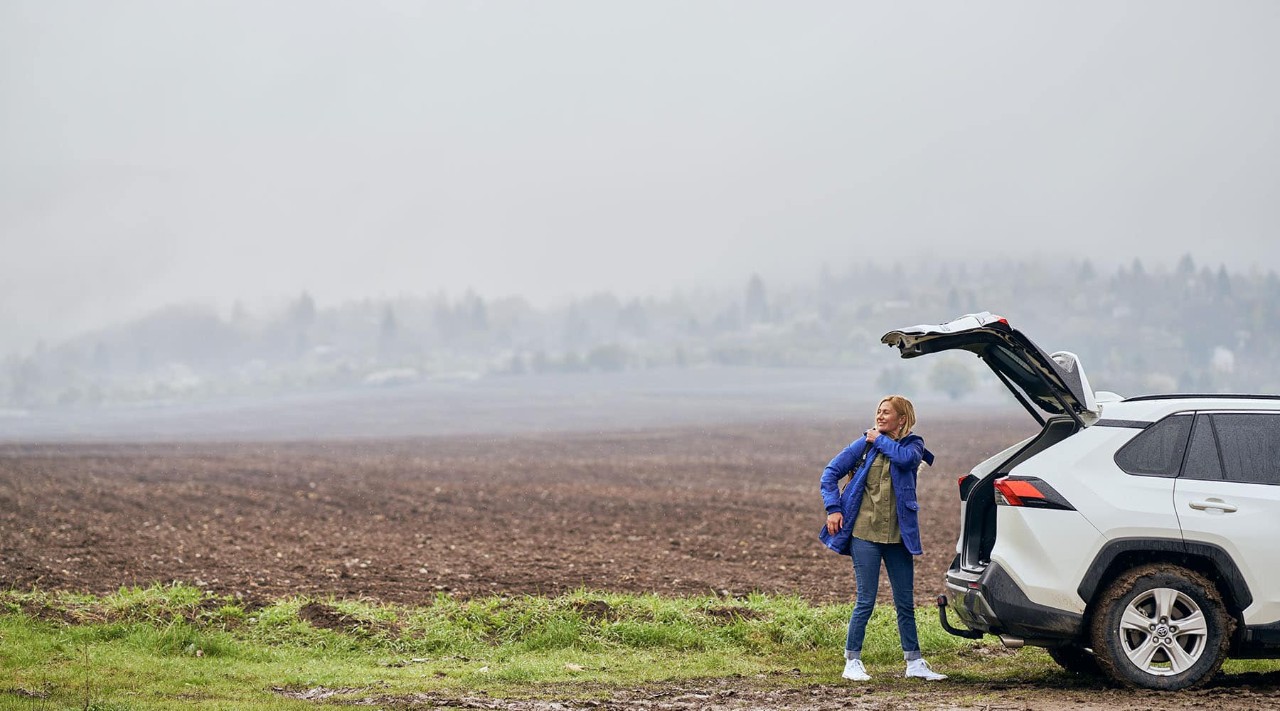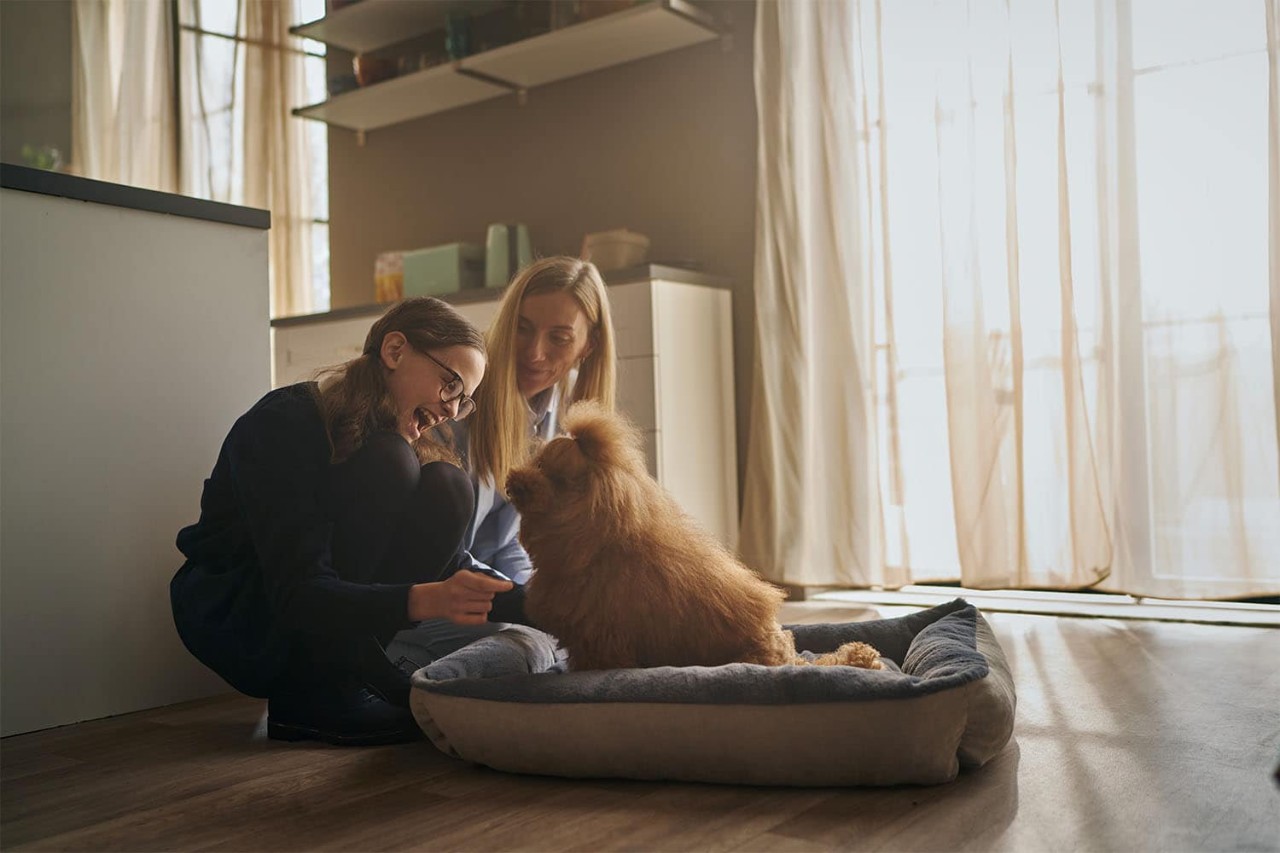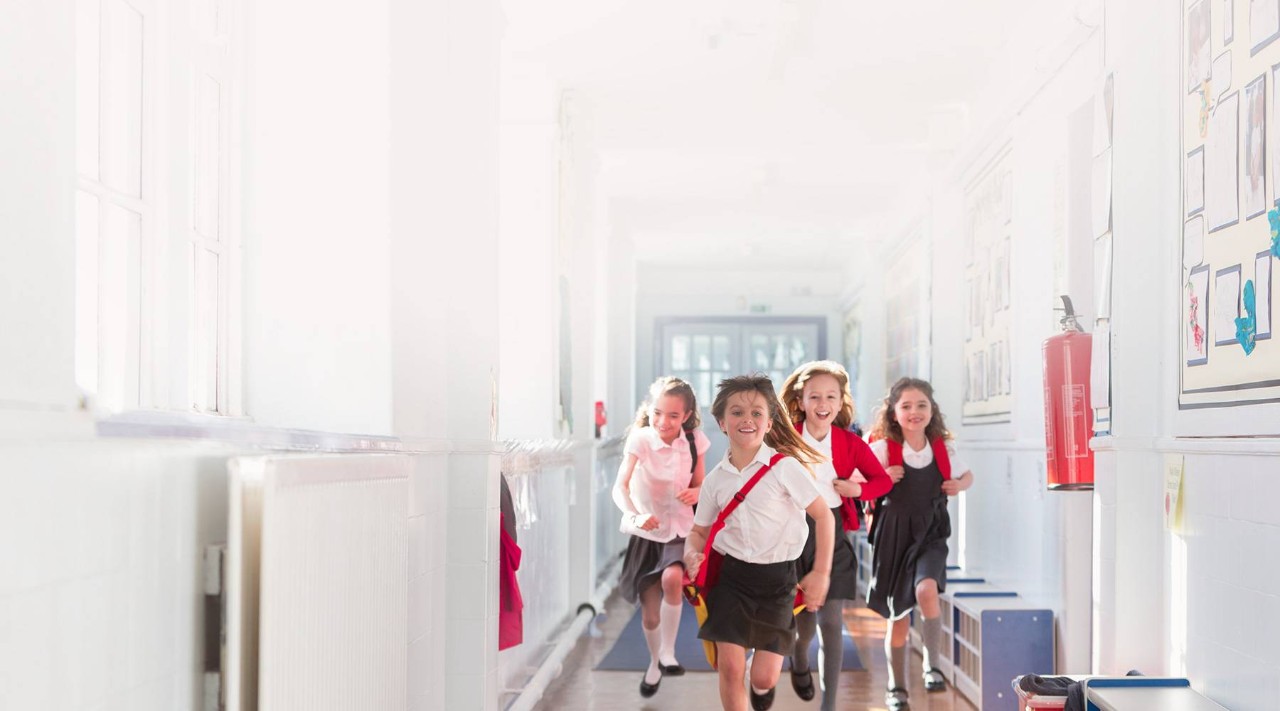Keep Your Animals Safe and Secure at Halloween
by Angela Hickey | 2 min read October 16th, 2018
As the dark evenings draw in and we approach the end of October we see signs of this year’s Halloween festivities beginning. Halloween can be exciting for us humans as we head into the dark cold winter but what about our pets?
Halloween can be traumatic and alarming to animals with sudden loud and high pitched sounds and flashing lights in the sky. They have a much higher frequency of hearing than we do and no way of making sense of what is happening. Anything unpredictable in their environment will alert their ‘fight or flight’ response, priming them to run and hide for safety or be aggressive to protect themselves. If neither of these options is available they may freeze and become traumatised and sensitised to that stimulus in the future.

- Keep all animals away from fireworks, bonfires and trick or treaters at the door.
- They may need tranquillising medication from your vet that should be given a week or more prior to fireworks season.
- Natural soothing aids like pheromones which can be diffused in the pet’s environment, other calming remedies and food additives should also be given weeks in advance and kept going until at least a week after Halloween.
- Walk dogs during the day, while children are at school and keep them on the lead in case a sudden sound scares them and they run away. MICROCHIPPING is a method to find your pet if they have gone missing and ensure they also wear a collar with contact details.
- Special T shirts that provide constant gentle pressure can be bought in pet shops and vet clinics and worn by your pet as another calming aid.
- Desensitising CDs with fireworks sounds can be used at low volume to gradually increase a pet’s tolerance of these sounds. Start using these CDs well in advance of next year’s Halloween.
- Animals are often victims of pranksters this time of year so keep them safe, indoors with you, with windows and cat flaps locked.
Keep smaller pets like rabbits and guinea pigs caged and safely secured in an outbuilding or brought into the kitchen for the night, safe from the sight and sounds of fireworks.
Even the most placid pets become anxious and for those with particular phobia to noise and strangers etc. this time of year can be very stressful. With fireworks dogs will run to find a safe place, often under a bed or behind a couch, desperately seeking to escape the unknown threat. Provide a den for them where they can feel safe by covering a pet crate with a blanket. Stressed cats will also want to hide away and refuse to engage in normal feeding, play or interaction with their owners. Keep all the curtains closed to muffle sounds outside and block flashes of light. Provide chew toys in the den as chewing and licking can be soothing. A high carbohydrate meal like pasta also has a calming effect and can be fed to dogs late afternoon so that they will settle down for the evening. Try to stay calm and confident in handling your pet so that they can be reassured by your lack of anxiety. Play with them when they are calm and sit in the room with them as much as you can. Brain teaser games engage their cognitive brain and take them out of ‘fight or flight’ mode. Reward only calm behaviour with a treat or petting. If you have to leave them alone for a while leave classical music on to block other noises.
Keep sweets along with their wrappings away from your pets especially those containing chocolate and xylitol as they are toxic. Halloween decorations are an easy attraction to your playful puppies or curious cats and may cause accidents or tummy upsets if chewed. Avoid access to lit candles as wagging tails can knock them over and curious kittens may singe their whiskers.
Animal charities report many injuries to animals and missing pets every Halloween so take the above steps to care for your pet so that you may both have a happy and safe Halloween!
This guidance is for general information purposes only.
Information correct as of date of publishing. This blog will not be updated or edited so the information may become outdated.






